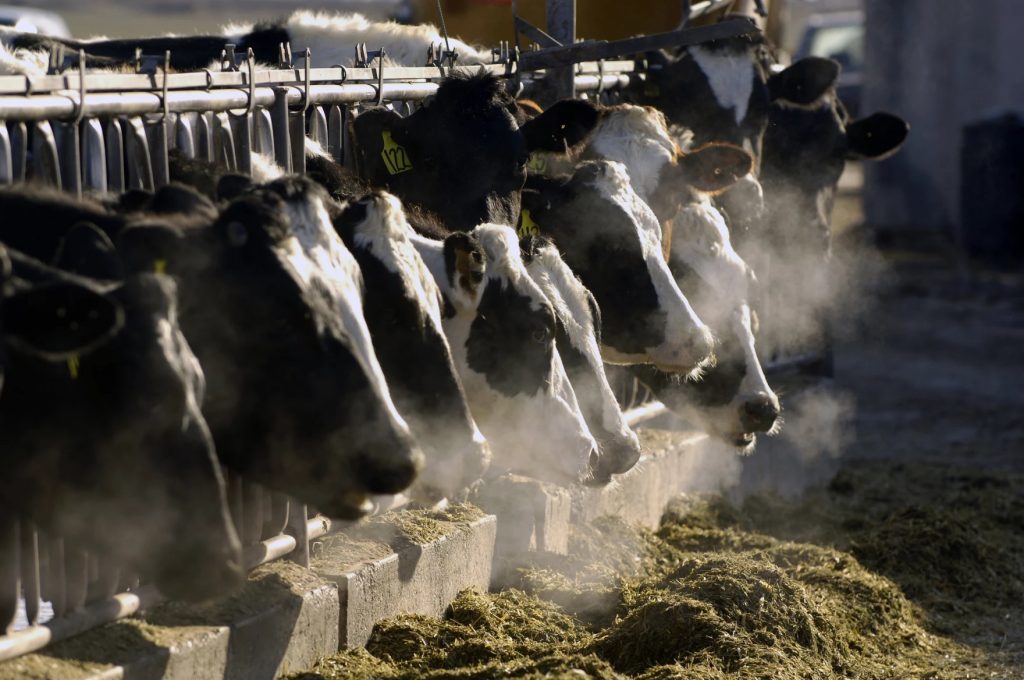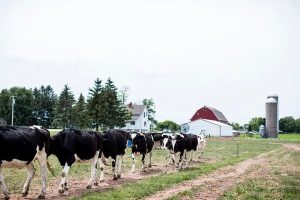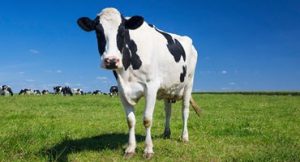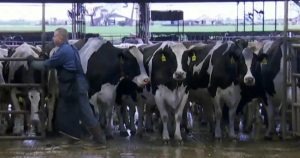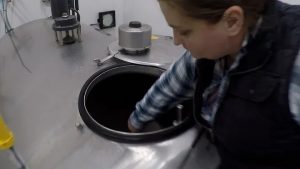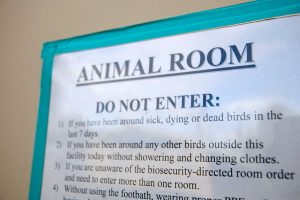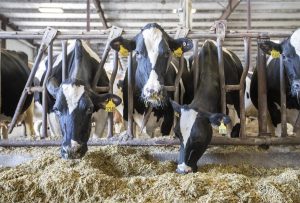
When the Trump administration arrives in Washington next year, it will be faced with an avian influenza outbreak that has already ravaged U.S. poultry operations and dairy farms, and poses a real risk of sparking a human pandemic.
The Biden administration has failed to dampen the outbreak. Barron’s asked five experts in epidemiology, veterinary science, avian health, virology, and health policy what the next administration needs to do to confront the problem.
The crisis has only worsened in recent weeks. The H5N1 avian influenza virus has ripped through California’s dairy herds since the end of August, with cases confirmed at more than a third of the state’s dairy operations.
Even more concerning are a handful of new, unexplained human cases. Until early November, nearly all of the people sick with the virus in the U.S. were farmworkers with mild infections.
In early November, however, a Canadian teenager who had not been near any farm animals was hospitalized in critical condition with an H5N1 infection, and on Friday the Centers for Disease Control and Prevention confirmed a case in a child in California.
“The more transmission events to humans that happen and are documented, the more the concern level rises,” says John P. Moore, a professor of microbiology and immunology at Weill Cornell Medicine. “At some point it’s a numbers game.”
Here are some big ideas on how to prevent a human bird flu pandemic.
Spend big on smothering the virus in cows and birds—it’s cheaper than the alternative
Stopping bird flu in animals may be costly, but not nearly as costly as stopping it once it’s infecting humans.
“There may be costs like lost trade,” says Dr. Carole Cardona, a bird flu scientist and a professor at the University of Minnesota’s College of Veterinary Medicine. “There may be costs like animals that have to be destroyed. But those will still pale in comparison to what is the $16 trillion estimate on how much the Covid pandemic cost us.”
Focus on farmworkers
Today, it’s workers on poultry and dairy farms who are most at risk. Jennifer Nuzzo, a professor of epidemiology at Brown University and director of the school’s Pandemic Center, says that the top priority for now should be to find sick farmworkers and treat them quickly.
Health authorities say that farmworkers with high-risk exposures should be given the antiviral Tamiflu. Nuzzo also thinks farmworkers should be offered H5N1 vaccines, which do exist in a government stockpile.
Cardona says poultry workers in particular need better guidance on protective gear. The current advice isn’t practical, she says, because of the heat in the barns where they work. “I think we have to come to the table with some real conversations about what to do better,” she says.
Track the virus more closely
“We need to beef up our surveillance,” says Dr. Ezekiel Emanuel, an oncologist and prominent health policy expert who served in the Obama administration, and who advised the Biden administration on Covid-19 during the pandemic.
Monitoring of the virus’s spread has been spotty. Multiple experts consulted by Barron’s called for expanded testing of milk before it is pasteurized, an effort the U.S. Department of Agriculture said in late October it had planned to launch.
“More testing of bulk milk… is critical to understand how the virus moves,” wrote Dr. Jürgen Richt, director of the Center of Excellence for Emerging and Zoonotic Animal Diseases and a professor at the Kansas State University College of Veterinary Medicine.
Move faster on a mRNA vaccine
Emanuel says we need to speed up development of an mRNA vaccine for avian influenza. “We’re still relying on, shockingly, shockingly, eggs,” he said, referring to how most flu vaccines are currently made. In an influenza pandemic situation, he said, “eggs just aren’t going to cut it.”
Moderna has a contract with the U.S. government to develop an mRNA-based bird flu vaccine, and has completed a phase 2 test, but has not yet progressed to phase 3.
Vaccinate cows now
There are at least two bird flu vaccines for cows currently being tested. Cardona says they should be used soon. “I think that’s the only way you’re going to control it,” she says.
Ask more from the states
Public health in the U.S. is generally under the purview of each state, and the CDC can only respond when it’s invited by state authorities. “This is a case where I think federalism doesn’t really work to our advantage,” Emanuel says.
He thinks that the CDC needs to demand more data, and more viral surveillance, in return for the funding it provides to state health agencies. “I think we need to rebalance that relationship,” he says.
Figure out if we’re prepared for a pandemic
Emanuel also says the federal government should prepare a new influenza pandemic preparedness plan.
“We need an assessment of our preparedness, in terms of both physical infrastructure, but also the human resources, the clinicians,” he says. “They’re tired, they’re burned out there. It’s a real problem, and we need to figure out what we need to do.”
If the worst happens, be ready to respond
If the virus does start to spread among humans, Trump appointees who were critical of mask mandates and lockdowns during the Covid-19 pandemic may need to impose some of the same restrictions.
“They’ve been on the record opposing those public health interventions,” says Moore. “Are they going to change their position? How many people would have to die before they changed their position?”
Write to Josh Nathan-Kazis at josh.nathan-kazis@barrons.com
You can now read the most important #news on #eDairyNews #Whatsapp channels!!!
🇺🇸 eDairy News INGLÊS: https://whatsapp.com/channel/0029VaKsjzGDTkJyIN6hcP1K
